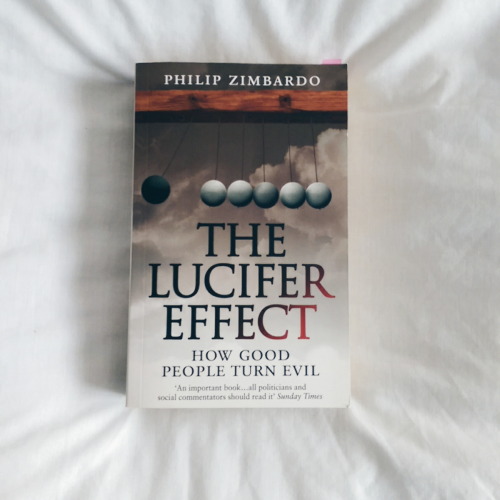studyingbrains: Book Recommendations: Books that have helped me think and write critically when it c
studyingbrains: Book Recommendations: Books that have helped me think and write critically when it comes to scientific literature. I’ve never gotten below a 4.0/1st in a lab report. This post will be especially helpful for those taking psychology, neuropsychology, neuroscience, cognitive neuroscience, pharmacy etc. All books are written by world leading academic researchers and are very well referenced. Bad Science by Dr Ben Goldacre - 342pgs, Age 11+. If there is a book on this list that you read, let it be this! Dr Goldacre focuses on the misuse of science by journalists, homeopaths, schools and big pharmaceutical companies. The book has a great segment on understanding “The Placebo Effect”. Other topics include; Brain Gym, misleading cosmetic adverts, issues with vitamin pills and “toxins”. He has a blog he runs Badscience.net that has great free articles! The book is beautifully referenced and really easy to read, definitely worth investing in. If you can’t spend money on the book just yet, there is a similar free talk here. Drugs: Without the Hot Air by Prof David Nutt - 316pgs, Age 12+. Prof Nutt incurred the wrath of the UK government when he put forth research papers stating that alcohol and tobacco were more harmful than many illegal drugs, including LSD, ecstasy and cannabis. In “Drugs”, he talks us through the science of what drugs are and how they work, quantifying and comparing the harms caused by different drugs, as well as drug addiction. This book is a great starting point and has educated me on all major drugs better than any textbook has. It’s written in simple English with numerous references and even has a wonderful segment titled “What should I tell my kids about drugs?”. I have had the pleasure of meeting Prof Nutt multiple times and given the slander he has endured, he remains passionate and dedicated to his field. Prof Nutt runs a website aimed at the general public Drugscience.org. There is a similar free talk here. Bad Pharma by Dr Ben Goldacre - 404pgs, Age 15+. Another gem by Dr Goldacre, this is a slightly heavier text than the above two books but is a must read for those going into pharmacy or research. Bad Pharma explains where new drugs come from and issues with missing data in clinical trials. Companies run bad trials on their own drugs, which distort and exaggerate the benefits by design. When these trials produce unflattering results, the data is simply buried. Dr Goldacre discusses the issues with design and also the harms of not making the missing trial data available. This book is not ‘anti-drug’, this book highlights issues with publication bias and how this needs to be and can be mended in order for doctors and patients to make better informed decisions on the drugs they are prescribing/prescribed.There is a similar free talk here. The Man who Mistook his Wife for a Hat by Dr Oliver Sacks - 246pgs, Age 11+. Written by the late Dr Oliver Sacks, this was the first book I purchased at the age of 13 in the field of neurology that made me go nuts for the brain. As a huge fan of Roald Dahl’s style, this book was just perfect. Dr Sacks turned patient case studies into short stories, inviting you into the incredible world of neurological disorders. The following phenomena are covered: visual agnosias, memory loss, Parkinsonion-symptoms, hallucinations etc. Dr Oliver Sacks has multiple books that are worth investing in, have a look at Oliversacks.com. There is a similar free talk here. Phantoms in the Brain by Dr V. S. Ramachandran - 257pgs, Age 15+. Ramachandran, through his research into brain damage, has discovered that the brain is continually organising itself in response to change. Phantoms in the Brain explores case studies and experiments invented by Dr Ramachandran like the Mirror Box to help understand the underlying issues. Examples of the case studies involve a woman who persists that her left arm is not paralysed (albeit her entire leftside is paralysed) and a young man loses his right arm in a motorcycle accident, yet he continues to feel a phantom arm with vivid sensation of movement. In a series of experiments using nothing more than Q-tips and dribbles of warm water the young man helped Dr Ramachandran discover how the brain is remapped after injury. This book is really enjoyable and is a slightly more in-depth read than The Man who Mistook his Wife for a Hat. There is a similar free talk here. The Lucifer Effect by Dr Philip Zimbardo - 488pgs, Age 18+ (due to explicit images). Prof Zimbardo provides an in-depth analysis of his classic Stanford Prison Experiment, and his personal experiences as an expert witness for one of the Abu Ghraib prison guards, raising fundamental questions about the nature of good and evil. This book has really interesting commentaries on The Columbine Shooting, People’s Temple Mass Suicide, Prison Abuse in Afghanistan etc. I enjoyed the book but it does get really repetitive (it definitely could have been made shorter by 100 pages), the publishers also use a really small font. There is a similar free talk here. Ages have been mentioned not as restrictions but as guidelines in terms of the writing style and sensitivity of the literature. Every book mentioned above doesn’t need to be read chronologically, from cover-to-cover. They have been compiled in such a way that you can dip in and out of the chapters without confusion. Lovely! All free talks are given by the authors and they cover the same topics that are mentioned in the books. If you ever wish to discuss the literature, do get in touch with me! -- source link
Tumblr Blog : studyingbrains.tumblr.com
#book recommendations





